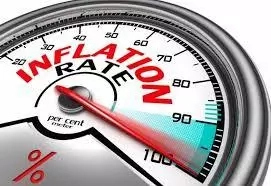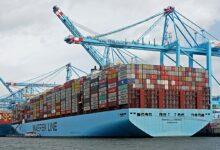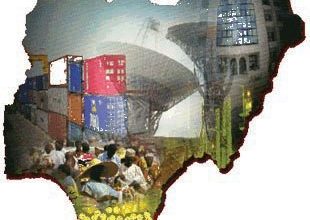10 Causes of Inflation in Nigeria
Inflation is the increase in the prices of goods and services which is caused by a variety of factors. There has been fluctuations in Nigeria’s inflation rate for decades rising as high as 47.56 in 1996 to as low as -2.49 in 2000.
Since then it has been rising and falling until early April 2018 year when it was reported at its lowest at 12.5 percent. Although the figures suggest that inflation rate has reduced compared to previous years, Nigerians still struggle to make ends meet as the prices of goods and services haven’t really changed as evidence of decrease in inflation rate.
👉 Relocate to Canada Today!
Live, Study and Work in Canada. No Payment is Required! Hurry Now click here to Apply >> Immigrate to CanadaTherefore it is important that Nigerians are informed of the causes of inflation so that they can help to prevent it in ways that they can rather than allowing the government alone to worry about it. Below are ten most common causes of inflation in Nigeria.
Read More: Current Inflation Rate in Nigeria

Causes of inflation in Nigeria:
1. Civil Unrest
Nigeria has been struggling against insurgency since the beginning of the democratic era in 1999. This unrest has made food production to reduce drastically particularly in the North East where most cases of killings and destruction of properties have been recorded.
The North East is a major food producer particularly Taraba State where cereals, yam and other food produce are cultivated.
With the killings of farmers on their farms and destruction of crops by cattle of Fulani herdsmen, food production has decreased significantly.
As a result, cost of food items has risen in accordance with the law of demand and supply which states that when there is high demand and low supply, price goes up. Therefore insecurity is a major cause of inflation in Nigeria.
Read More: 15 Problems Facing Nigeria Economy and Possible Solutions
2. Government Economic Policies
The policies of the federal government through the Central Bank of Nigeria (CBN) have contributed immensely to worsening inflation in Nigeria.
👉 Relocate to Canada Today!
Live, Study and Work in Canada. No Payment is Required! Hurry Now click here to Apply >> Immigrate to CanadaFor instance the printing of notes for spending by government injects so much money into the system thus raising inflation naturally by making sellers of goods and services to raise their prices because of the money in circulation.
It is the function of the CBN to control inflation in the economy but it has failed in this duty majorly because it answers more to the demands of the reigning government than to the health of Nigeria’s economy.
3. Devaluation of the Naira
Devaluation of the Naira may have a few advantages such as increase in export, reduced trade deficit and others but a major disadvantage is that it leads to inflation due to lower purchasing power.
It also causes an increase in the cost of importation with a consequent rise in the prices of imported goods. We see in Nigeria today money you could use to buy a bag of rice three years ago cannot buy half a bag now as a result of Naira devaluation. This is therefore a major cause of inflation in Nigeria today.
Read More: 11 Factors Affecting Economic Growth in Nigeria
4. Increased Wages
Workers place demands on employers for higher wages as a result of the biting effects of prices in the market. However increasing wages will only make it worse because higher wages will increase spending power and so flood the market with money, which further increases inflation. In other words, higher wages equals higher purchasing power which equals higher inflation.
5. The price of Fuel
Fuel used for vehicles that transport goods determines the prices of most items. Therefore an increase in the price of fuel leads to an increase in the prices of goods. This is the situation today since the pump price for petrol is 145 Naira as opposed to 97 Naira three years ago.
The petrol is also scarce so black marketers further increase the price particularly in rural areas where food items have to be transported to cities. Inflation in food prices therefore is inevitable.
6. Reduction in Productivity
Apart from the decline in food production by farmers due to insecurity, decline in production of finished goods may also cause inflation.
This is a major problem in Nigeria because of epileptic power supply which may increase cost of production. If industries reduce production due to any of these factors then supply decreases and prices will go up.
Read More: Nigeria Economy Today: Outlook, Facts, Analysis, and Economic Potentials
7. Higher Taxes
There has been a recent increase in taxation in Nigeria especially on imported goods. This discourages importation of goods and it discourages investors who may want to establish businesses in the country.
This causes scarcity of goods and so leads to an increase in prices, thereby causing inflation. Taxes must be reduced to encourage investors to produce goods to increase supply so that inflation can be reduced in the market.
8. Expectation of Inflation
Sometimes no obvious reasons causes inflation but the fear of inflation itself. When workers perceive inflation, the demand increased wages. If this demand is granted, the market get so much money which in turn leads to the inflation they were trying to avoid.
9. Pre-election and Campaign Spending
As is the custom in Nigeria, as elections draw near, politicians spend so much money to get voters to vote for them since they have not done anything for those voters to deserve their votes.
This brings so much money into the economy and therefore causes inflation because traders will increase their prices as they see money in circulation.
We are about to start experiencing this as 2019 draws near. Dear reader, beware! The money politicians spend on you is not meant to help you. It will worsen your condition in the long run.
10. Poverty
Prices of goods and services may rise not because of any of the above mentioned reasons but because the sellers are trying to make ends meet. The profits from sales are not enough to cater for their families so they raise their prices.
This is quite common in Nigeria as life has become really difficult for most traders these days and not just for them, but for every citizen. Those who render services such as transportation also raise their prices due to this same reason.
Read More:
Conclusion
Inflation has hit Nigeria for a while now and there is no hope in sight as the present government doesn’t seem to know the way out.
Therefore it is the responsibility of Nigerians to prevent or control those factors that make inflation to bite harder on the citizens.
Avoid anything that will cause destruction of lives and properties and report those who are involved to security agents. We need peace for this country to be good again. Thanks for reading.







